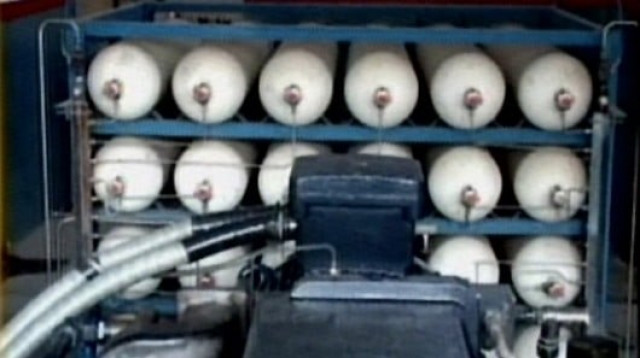Accidents & shortage: Regulator proposes ban on CNG in transport vehicles
Govt to facilitate CNG stations to convert to LPG outlets.

The Oil and Gas Regulatory Authority (Ogra) has proposed to the government to impose a ban on use of compressed natural gas (CNG) in public transport vehicles in order to prevent deadly accidents, ease gas shortage and improve gas pressure.
In a letter sent to the petroleum secretary on December 16, Ogra’s Member Gas Mansoor Muzaffar said “a policy decision may be taken on urgent basis and filling of CNG in public transport vehicles including buses, coasters and wagons by CNG stations may be banned as accidents in vehicles are occurring due to unauthorised conversion and leakage of gas.”
He said people and industrialists were worried over shortage of gas and low pressure, which had also hurt economic development.
He suggested that private vehicles with more than one cylinder should also not be allowed CNG consumption and said a policy decision should be taken immediately.
Muzaffar also recommended that provincial governments should take stern action against unauthorised and illegal CNG conversion workshops to ensure public safety.
“Ogra hopes that these measures will help control not only low pressure problems of gas but will also control CNG-related accidents in public transport vehicles and ensure public safety,” he said.
Talking to The Express Tribune, Member Gas Mansoor Muzaffar said the government assisted CNG station owners in setting up liquefied petroleum gas (LPG) auto filling stations at existing sites as an alternative to protect their investments.
“CNG station owners do not need additional permission from Ogra to set up LPG filling outlets except for a no-objection certificate (NoC) to comply with safety rules,” he said, adding LPG was 15 per cent cheaper compared to motor gasoline.
According to Muzaffar, swift growth of CNG stations has caused the gas shortage, which in turn encouraged public transporters to install more than one gas cylinder in their vehicles. “Public transport vehicle has become a mobile CNG storage,” he remarked.
This has taken a heavy toll on the life and property of people, Muzaffar said in the letter, adding illegal and unauthorised CNG conversion workshops by the roadside were mainly responsible.
Published in The Express Tribune, December 18th, 2011.



















COMMENTS
Comments are moderated and generally will be posted if they are on-topic and not abusive.
For more information, please see our Comments FAQ